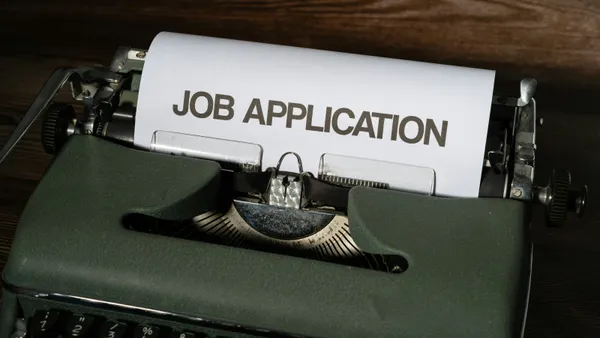LAS VEGAS – As large companies strive to employ artificial intelligence to bolster efficiency and growth, Citi’s Tim Ryan believes getting employees to buy into an AI strategy is even more important than the right technology choices.
“There’s no way we can sit in New York and come up with the strategy for a global company and implement it if we’re not bringing our people [in] on the strategy,” Ryan, head of technology and business enablement at the bank, said Monday at the Money20/20 conference in Las Vegas.
AI is “a standing topic” with Citi’s board, noted Ryan, who joined the bank in 2024. He had been a senior partner at PricewaterhouseCoopers when he was tapped to lead Citi’s efforts to transform its operations and adopt emerging technologies with efficiency in mind.
About 180,000 of the New York City-based bank’s 230,000 employees are using its AI tools, Ryan said. Staffers wrote 7 million prompts in the first eight months of this year, and have done about 1 million automated code reviews that have freed up 100,000 hours each week, he said.
“Companies that are our scale, they will win because of how they bring their people on this journey,” he said. “That's what will determine the winners and the losers. It won't be somebody standing on this stage saying, ‘I should have chosen this tech stack versus that tech stack.’ It won’t happen. What’ll happen is, it'll be, ‘I could have done a better job getting our people to buy into the strategy, equipping them to implement the strategy we're designing.’”
That approach creates what Ryan called “an innovation dividend,” where employees then spot new ways to serve customers, drive revenue growth, manage risk and operate more efficiently.
“It's the single biggest reason we have momentum,” Ryan said.
In his experience working with CEOs while at PwC, Ryan said change management can be underestimated in optimizing a certain strategy.
“Don't just sell tech,” Ryan told conference attendees. “You have amazing technology. When you're talking to people like me or my peers, think about, how does it get implemented at the scale of the organization?
“Sell tech and people, and that will win,” Ryan said.
AI ‘accelerators’
Citi’s 4,000 “AI accelerators” rank as a key element of the bank’s change management approach, Ryan said. Those are staffers across all five of the bank’s businesses and various functions who’ve “leaned in” to the bank’s strategy around AI, he said.
“These are the people that we meet with on a regular basis, to understand what's working in the tools, what's not working in the tools, what systems do we need to integrate with, what the next release of our tools needs to bring,” Ryan said.
In conjunction with that, it’s crucial for Ryan to “have a leadership team around me that really embraces the concept of listening,” he said, “which is easy to say and hard to do.”
Ryan also noted the importance of the bank’s cloud-first infrastructure in enabling innovation, especially when it comes to agentic AI.
The bank employs a hybrid cloud strategy, investing both internally and working with partners such as Google, Anthropic and Cognition Labs.
“Our cloud strategy allows us to bring in the right parties and cohesively get that scale,” Ryan said.
One of the biggest challenges is to speed it up safely, he said.
“If it takes 12 days to get something tested, I think it’s too late,” Ryan said.
The lender has made adjustments over the past two years to bump up its testing time frame, from days to hours, “and that agility is incredibly important.” The bank is also able to deploy changes faster, he said.
In risk, the bank is using AI agents and working to scale that effort, “but not taking that human out of the loop,” he said. That offers the opportunity “to give our stakeholders more confidence around risk and controls.”
Citi is also eyeing opportunities to use AI agents in its wealth and retail banking businesses, he said.
The bank recently rolled out agentic AI capabilities to 5,000 employees using its proprietary AI platform. Workers issue a prompt, and an agent can take multistep directions and complete tasks quickly. “We will scale that going into next year,” Ryan said.
There was no shortage of AI-related discussion at Money20/20, including its effect on jobs in financial services.
E-commerce giant Amazon on Tuesday said it was cutting about 14,000 workers as it invests further in AI. Top banks such as JPMorgan, Bank of America and Goldman Sachs have been eager to highlight how they’re employing AI; at the same time, the companies are cutting workers or slowing hiring. Citi, for its part, has trimmed its headcount as part of a broader effort announced in 2024 to cut 20,000 employees by 2026.
Ryan, however, emphasized the importance of employees’ role in carrying out the bank’s AI strategy.
“Our job as leaders, regardless of whether you're in a fintech or a large financial organization like Citi, our job as leaders is to bring our people along, not to scare them,” Ryan said.























